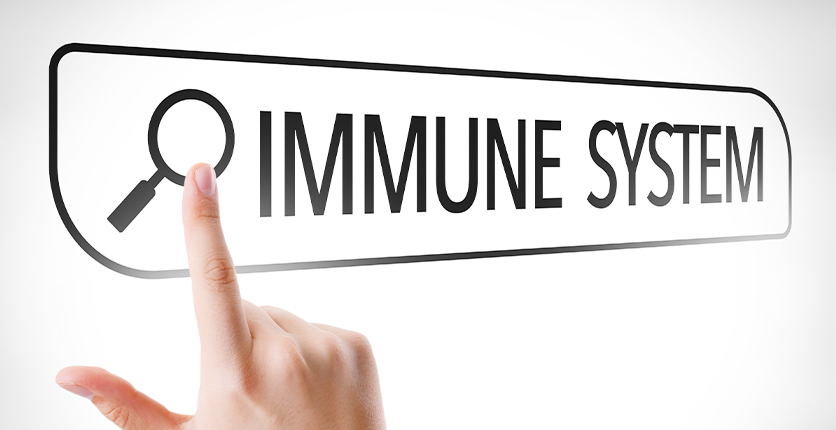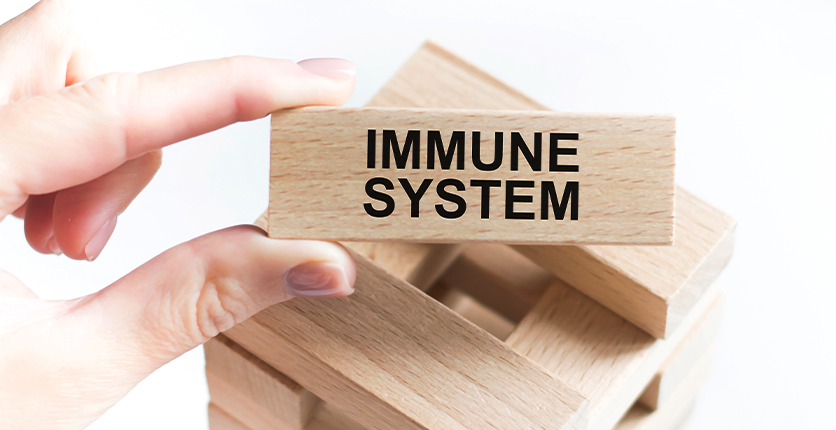When our immune system is healthy, we are better protected against infections and disease and tend to recover easily and quickly from illnesses.
On the contrary, when our immune system isn’t as strong as it could or should be, we are more susceptible to sickness and disease and may take a while to recover from even minor illnesses.
Many things may affect the health of our immune system, among them, our lifestyle habits, sleep quality, level of physical activity, and diet.
We asked Dr Ho Woon Yang, Senior Family Physician, Raffles Medical, and Dr Ryan Wong, a general practitioner at OneDoctors (HV) Family Clinic, to tell us how our immune system works and to share their expert tips for keeping it healthy.

Q: What exactly is the immune system?
Dr Ho: Our immune system is made up of a complex network of organs, cells and proteins that protect against infections. The main parts of the immune system comprise white blood cells, antibodies, the spleen, the bone marrow, the complement system, the lymphatic system, and the thymus.

Q: Why is it important to keep our immune system healthy?
Dr Ho: The immune system protects us against disease-causing microorganisms, such as bacteria and viruses, which can be found everywhere in the environment. Without our immune system, normal humans would not be able to survive due to a high susceptibility to infections.
Dr Wong: It also helps us to effectively and efficiently recover from infections when we do fall ill.

Q: How does our immune system function?
Dr Ho: There are two main subsystems within the immune system: the innate immune system and the adaptive immune system. The innate immune system provides a general defence against harmful germs and substances that enter the body, by directly fighting and eliminating these harmful substances. The adaptive immune system recognises these foreign substances and germs and makes antibodies to directly target these harmful substances. The adaptive immune system also keeps the data of the antibody produced, so that if the body encounters the same harmful substance or a similar germ in the future, it will produce the same antibody and hence provide immunity to the same infection.

Q: How can we tell if our immune system is weak?
Dr Wong: People with a healthy immune system tend to fall ill less frequently, and generally recover faster and uneventfully when they do fall ill. They also tend to be in better moods and enjoy a better quality of sleep.
Conversely, people with a weakened immune system tend to fall ill more frequently, take longer to recover from an illness or require more intensive treatment, and may experience complications of infections more frequently. They also tend to experience poorer moods and poorer sleep quality.

Q5: How do things like stress, exercise, sleep, and nutrition influence the health of our immune system?
Dr Ho: Studies have shown that the health of the immune system is strongly related to the body’s metabolism. A person with a good metabolism usually enjoys a better and healthier lifestyle as their immunity is stronger. Stress, exercise, sleep and nutrition play an important role to ensure that the body’s metabolism functions at an optimal level, and hence also influences the health of our immune system.
Find out more on how to get good quality sleep and a better night’s rest.

Q: What are some good lifestyle practices to adopt that may help us fend off infections and disease?
Dr Wong: Keep stress under control, exercise regularly (including doing outdoor activities with some sun exposure, to help with vitamin D levels), get sufficient quality sleep every night, eat a healthy, well-balanced diet, reduce your alcohol consumption, and quitting smoking if you smoke, can all help us maintain our immune system’s ability to fend off infection.
Further active steps like hand hygiene and keeping up to date with vaccinations can also help our immune system by reducing the spread of microbes and preparing the body (specifically the adaptive immune system) for would-be “invaders”.

Q: Some foods are said to be immunity-boosting. What are they and how exactly do they help our immune system?
Dr Wong: Here are a few.
Carrots, pumpkins, tomatoes, mangoes, and green leafy vegetables like spinach and kale, as well as fish oils, milk and eggs, are all high in vitamin A, commonly dubbed the anti-inflammatory vitamin. Vitamin A serves the innate immune system by preserving the integrity of our skin. It also serves the adaptive immune system by regulating differentiation and function of our white blood cells, and the chemicals they secrete, called cytokines.
Citrus fruits like oranges, kiwi and grapefruit, tomatoes, capsicum, and vegetables like broccoli and kale, are high in vitamin C, which may shorten the duration of common illnesses like a cold. It’s important to mention that there is no evidence that vitamin C prevents infections.
Oily fish such as salmon, tuna and sardines, eggs, and milk and fruit juices fortified with vitamin D, are all excellent sources of vitamin D. Another, and one of the best sources of vitamin D is cod liver oil, which contains up to 10,000 IU of vitamin D per 100g. Vitamin D improves symptoms of lethargy, and improves our innate immune system by boosting the production of antiviral proteins circulating in the body, and by increasing the activity of immune cells like macrophages and natural killer cells. It also prevents overaggressive immune responses that may actually damage our body, by regulating the release of proteins called cytokines as part of the inflammatory response.
Red meat, poultry, shellfish, eggs and dairy, plus non-animal foods like tofu, legumes (such as chickpeas), seeds (such as oats and pumpkin seeds), mushrooms, and even dark chocolate, are high in zinc. Zinc is important in repairing damaged cells, and so is necessary for a healthy and properly-functioning innate immune system. It also supports the growth and normal functioning of cells in both the innate and adaptive immune system.
Probiotic-rich foods like cultured milk drinks, yogurt, and fermented foods like kimchi or sauerkraut, may enhance the innate immune system of our gut by promoting a healthy microflora, and may positively affect inflammation due to infection in the gut. However, the evidence for these exact benefits of probiotics at this time is not conclusive.
Read more on what to eat in your 20s, 30s, 40s and beyond to stay healthy.
SAFRA Member Promotion
Boost your well-being with Raffles Health. The Raffles Adult Multis contains a comprehensive blend of important nutrients and vitamins that are beneficial for overall wellness and health. For more information, visit raffleshealth.com/raffles-adult-multis-60-tablets.html
SAFRA members can enjoy 20% off regular-priced Raffles Health supplements. Valid for purchases made on www.raffleshealth.com. Use code “SAFRA20” at checkout. Applicable till 31 December 2023. Terms and conditions apply.
Take charge of your health! SAFRA members enjoy corporate rates on General Practice (GP) services at Raffles Medical clinics, and Enhanced Health Screening from $477.70 (inclusive of GST). Terms and conditions apply.
NSmen, sign up for your complimentary 1-year SAFRA membership and enjoy discounts on dining and shopping purchases at over 2,000 merchant outlets islandwide, as well as members’ rates at more than 45 sports facilities at SAFRA clubs! What’s more, your family can enjoy the privileges too – your 1st dependent pays $10/year, and it’s free for your 2nd dependent onwards. Click here for more details.
Want more articles like this, and other lifestyle content right in your inbox? Download the new SAFRA mobile app and opt in for the eNSman Newsletter – you don’t need to be a SAFRA member to subscribe – and never miss another story!







